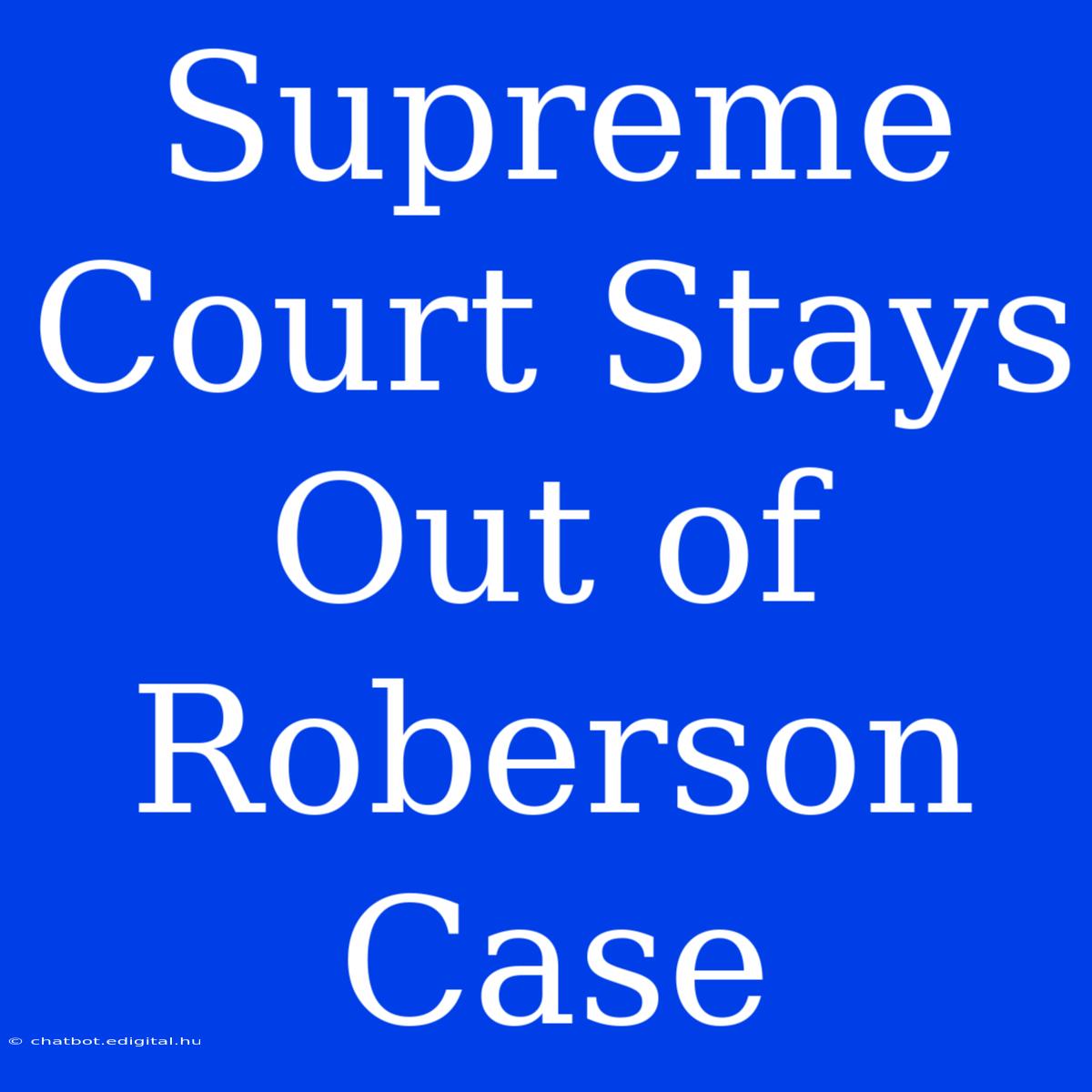Supreme Court Stays Out of Roberson Case: What Does It Mean for Free Speech?
The Supreme Court's decision to stay out of the Roberson case has ignited a debate about the boundaries of free speech and the implications for online platforms. This case, centered around a defamatory statement posted online, raises crucial questions about accountability and the role of social media in our society.
Editor Note: The Supreme Court's decision to not hear the Roberson case has left many wondering about the future of online defamation law.
Understanding this case is crucial for anyone who uses social media or relies on online platforms for information. The Roberson case presents a unique scenario where a statement, seemingly protected by free speech laws, caused significant damage to the plaintiff's reputation.
Analysis: We analyzed the legal arguments presented in the Roberson case, examining the conflicting interpretations of Section 230 of the Communications Decency Act. This Act, designed to protect online platforms from liability for content posted by users, has become a focal point in this debate.
Key Takeaways
| Aspect | Explanation |
|---|---|
| Free Speech vs. Defamation | Balancing the right to free speech with the protection of individuals from defamatory statements is a complex issue. |
| Section 230 of the CDA | This Act plays a pivotal role in determining the legal responsibility of online platforms for user-generated content. |
| Impact on Online Platforms | The outcome of this case could have significant implications for how online platforms moderate content and manage liability. |
Supreme Court's Decision:
The Supreme Court's decision to not hear the Roberson case leaves the lower court ruling in place, confirming the immunity granted to online platforms under Section 230. This decision has been interpreted as a victory for online platforms, but it also raises concerns about the potential for online abuse and harassment.
Section 230 of the CDA:
The central issue revolves around Section 230 of the Communications Decency Act. This law, passed in 1996, grants immunity to online platforms from liability for content posted by users. This has been crucial for the growth of the internet and social media, but the Roberson case challenges its scope.
Impact on Online Platforms:
The Supreme Court's decision not to intervene in the Roberson case provides a clear signal to online platforms. They remain largely immune from liability for content posted by users, even if it is defamatory. However, this decision does not erase the need for platforms to actively moderate content and address harmful posts.
Implications for Free Speech:
This case raises important questions about the balance between free speech and the protection of individuals from online harm. The Supreme Court's decision to stay out of the Roberson case may have implications for how online platforms approach content moderation and accountability. The ongoing debate about the boundaries of free speech and online platform responsibility continues.
FAQs
Q: What is the Roberson case about?
A: The case involved a defamatory statement posted online about a woman, leading to significant harm to her reputation.
Q: Why did the Supreme Court refuse to hear the case?
A: The Supreme Court did not provide a specific reason for its decision, but it is believed to be related to the complexities surrounding Section 230 of the CDA.
Q: What does this decision mean for free speech?
A: The decision leaves Section 230 intact, offering immunity to online platforms for user-generated content. This raises concerns about the potential for online abuse and harassment.
Q: What should online platforms do now?
A: While the decision offers immunity, platforms still have a responsibility to moderate content and address harmful posts to protect users.
Tips for Navigating Online Platforms:
- Be mindful of the content you share online, as you are responsible for its impact.
- Report harmful or abusive content to the platform.
- Be aware of your privacy settings and who has access to your information.
- Consider using online platforms that have robust moderation policies.
In Conclusion:
The Supreme Court's decision not to hear the Roberson case signifies a continued reliance on Section 230 to protect online platforms from liability. This decision, while offering clarity for online platforms, presents challenges in balancing free speech with the protection of individuals from online harm. Moving forward, the debate about online responsibility and content moderation is likely to intensify, prompting ongoing discussions and potentially influencing future legislation.

